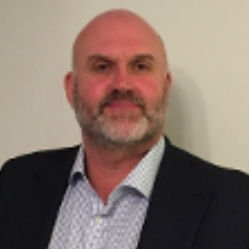
What is in the report
The report is a lengthy 33 pages and is broken down into four main sections, as well as an introduction, a summary of key findings, and a conclusion. The four main sections are:
- The Financial Outlook of 2022
- Operational Performance & Challenges
- The Employee Experience
- Sustainability
Each section looks at the findings from the survey, delivers an analysis, and concludes with some key takeaways. The sample set was divided equally between five regions in Europe (UK, France, DACH, Benelux and the Nordics) and five sectors (IT Services, Architecture and Engineering, Management consulting, Financial Services and others).
The report is a solid read, perhaps only missing out on some qualitative elements that would have given colour to the findings. Overall the outlook is positive. 83% of respondents expect growth in the next year, and 36% expect more than 6%. Other key findings include:
- 50% expect to acquire new customers
- 29% expect to expand headcount by more than 10%
- 40% said that M&A would be a primary growth driver
- 64% now track employee wellness
- 50% of employees will work remotely in 2025

Mark Gibbison, Head of Strategic Motions for New Business, Unit4, said: “Future success in the Professional Services industry will depend on how innovatively firms can respond to client demands. That requires an IT infrastructure built on agile foundations and designed to deliver a single source of information. Firms are also going to have to pay close attention to resource management to avoid talent attrition and maximize repeat revenue from existing customers.”
The Financial Outlook of 2022
The positive results are not uniform across the different sectors and regions. Management Consulting firms are most conservative, with a third expecting revenue to drop in 2022. However, this may be a result of the growth they experienced in 2021 as customers sought help with digital transformation. In contracts, IT Services were the most optimistic, with PAC estimating that spending on IT services will exceed €222 billion in Western Europe in 2022.
PS firms in the UK (54%) and France(43%) expect strong or very strong growth, with UK and DACH firms expecting to secure growth through new logos. Leveraging the PAC research, the authors supplement the survey analysis with companies that evidence the findings.
It summarises with a viewpoint that states the sector is broadly optimistic. Revenues will increase mainly through net new logos and acquisitions. However, it sounded a note of caution with wages and costs increasing; there may be pressure on cash flow.
From a Unit4 point of view, this makes automation, linked CRM and PSA crucial and the ability to improve utilisation and decreasing time to invoice, crucial.
Operational Performance & Challenges
This section is the most interesting for most readers as it looks at similar metrics to the much larger SPI research (which is mainly US-centric). It notes that while firms intend to increase headcount, access to talent is a concern. It notes a growing movement toward the gig economy with freelance consulting platforms such as Weem and Malt providing new resources for talent.
Of bigger concern is the performance of key metrics such as utilisation, with 19% dropping below 70% and 16% of Belgian companies below 50%. 22% of financial services companies were also below 50% utilisation. With the growing trend towards freelance resources, resource management is increasingly complex, and technology may provide an answer.
One emerging key metric is customer sentiment, with 95% of firms having visibility of their Net Promoter Score. Firms will need to improve NPS by delivering projects on time. While only 56% of DACH based PS firms delivered 75% of projects on time, that was the highest.
Firms seek to recruit more staff; however, they also need to look at their internal systems to ensure that utilisation does not fall further.
The Employee Experience
With the talk of the Great Resignation, IT Services (44%) and Management Consulting (42%) have greater than 30% attrition, the highest. The lowest is seen in DACH and Architectural and engineering firms. Mid-size firms often feel the impact of attrition more. However, without a qualitative element, the authors could not answer why, other than saying leadership and teams can often leave. The report notes the importance of having processes and systems to mitigate such departures.
Many firms are looking to enhance the employee experience, with the authors citing examples such as Delta Capital, which runs a “close the week” virtual get together every Friday. Firms are also embracing hybrid working, importantly they are asking employees what they want first. For example, Grant Thornton asked its employees in a survey to help determine its strategy.
The amount of home working varies across Europe. With Benelux and the UK leading the way, but home working is also increasing in Germany and France. Firms are changing property strategies. French firm SIA Partners opening an office dedicated to collaborative working. Arcadis opening a new office in London to meet the needs of its employees that want to work between one and three days in an office.
The research has two key takeaways: retaining talent is a huge concern, and hybrid working is here to stay. These are not surprising findings with similar research finding the same. The survey could have dived deeper into the issue, providing readers with a greater understanding of why people leave organisations and what can be done to keep them. Research such as that recently completed by Achievers had some interesting findings in this area.
Sustainability
Sustainability is a focus for many organisations, and professional services organisations are being challenged by their clients. 80% of business leaders agree that decarbonisation will be critical for the survival of their organisation. This is not just lip service; one key focus is reducing travel. While the authors cited PWC as reducing travel by 2/3, it does not appear that the survey included questions that dive into the priorities of PS firms and how they will reduce carbon emissions across Scope 1,2 and 3.
Firms are committing to net-zero emissions, though with 74% of Nordic PS firms committing to achieve net-zero by 2030 (the highest) and 70% of IT services firms making a similar commitment. 14% of firms have not yet committed, and 36% of “other” firms haven’t either. Technology will help drive down carbon emissions with virtual meeting and collaboration software helping to reduce travel.
The report also looked at innovation. It found that technology, specifically integration between systems and legacy applications, are holding firms back.
Enterprise Times: What does this mean
While there is a lack of depth in some of the survey questions, PAC has produced a report studded with examples from professional services firms from its knowledge of the sector. It makes an interesting read, though one that does not dive into the details of the findings.
At times the numbers provided are slightly confusing. The report would have been strengthened if the authors had provided the full detail of some of the responses.
Mayes concluded: “It could be tempting, as optimism returns to the professional services sector, that business leaders choose to avoid addressing the key issues raised in this study. It is more important than ever to have the right strategies in place to sustain growth and operate with the flexibility to adjust to what are still quite volatile market conditions. 2022 may not quite be a year of ‘consolidate or be consolidated’ but firms should be under no illusion that alongside growing opportunities market pressures are accelerating.”
Mayes comment is insightful. PS Firms are optimistic, but they need to be aware of keeping their staff and their organisation. Companies like Sweco are acquisitive and have bought around 100 firms in the last 15 years. Those key issues include employee experience. PS firms need to remember that they are people first, and customers and employees are critical for survival. Forgetting to engage and deliver to either group can prove fatal.


























